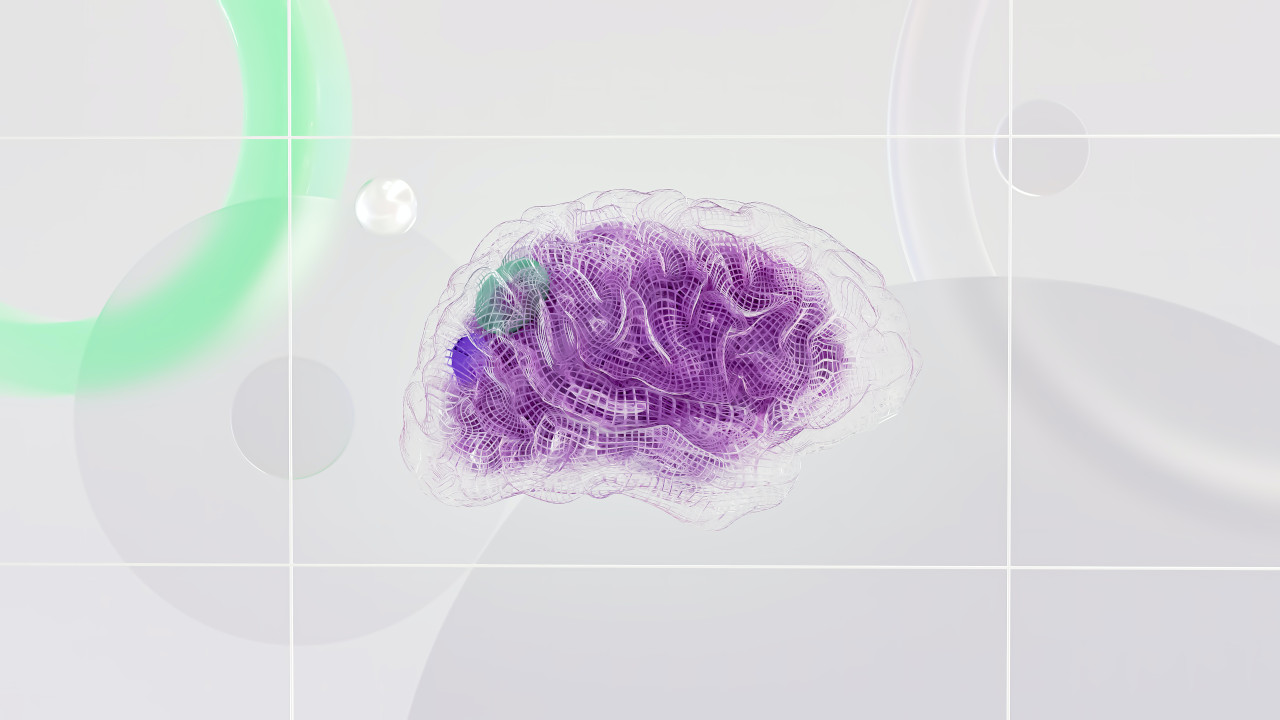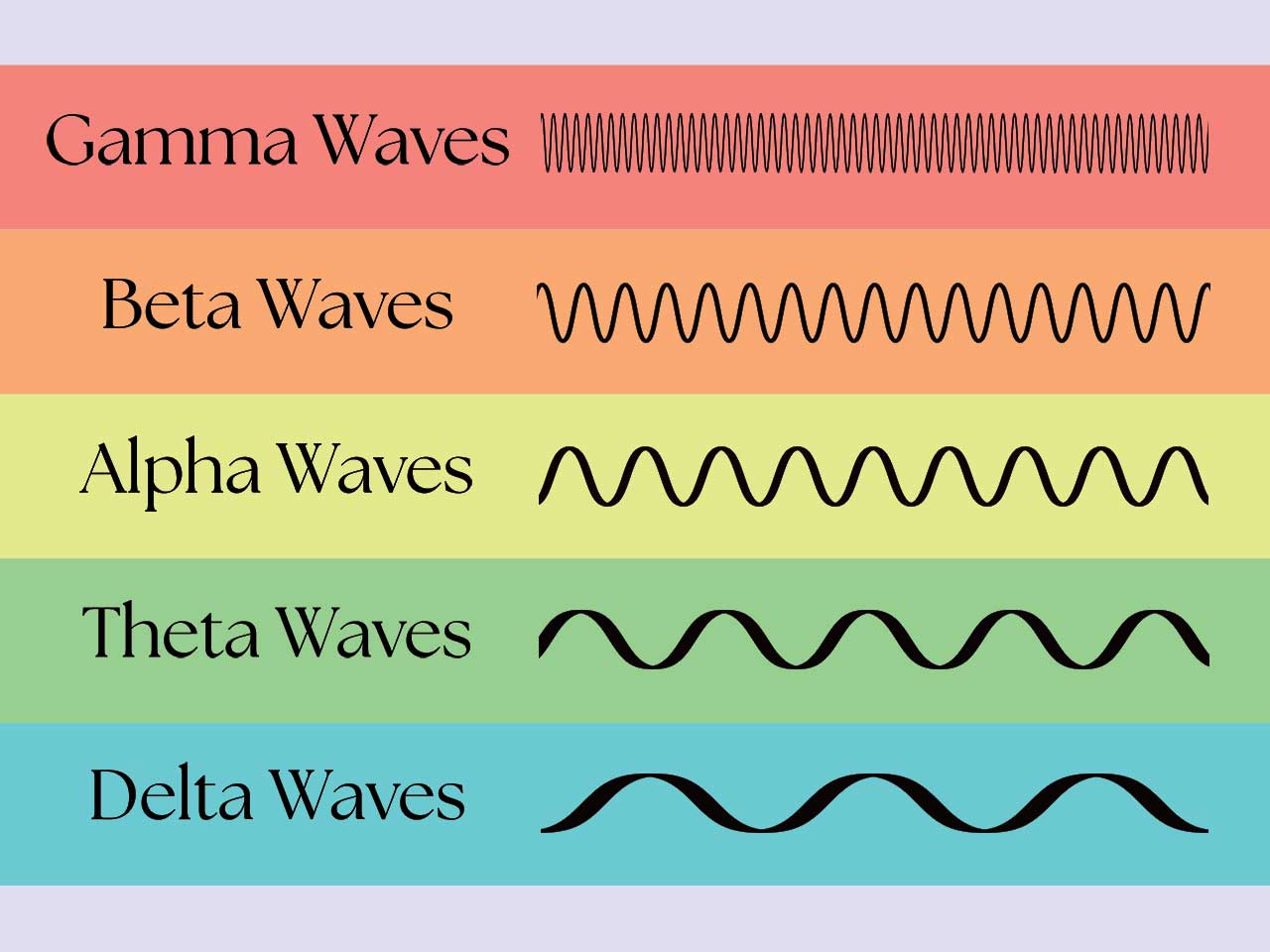For years the psychological research on emotion focused almost exclusively on the negative. This is understandable—if we hope to relieve people of their suffering we should learn about the brain mechanisms underlying the problems.
However, a singular focus on negative emotions is unbalanced. It is equally important to study the more pleasant and positive emotions to find out what lifts us up and makes us feel good. More recently the field of positive psychology has been doing just that.
Psychologists and neuroscientists have been studying flow and peak performance, meditation and mindfulness, and awe and wonder, among many other captivating sensations.
Our understanding of what makes us happy and healthy has grown much richer, and also more practical—we’re learning not just what makes a good life but also how to make it a good life.
Alpha Brain Waves
One of the dominant ways we measure brain activity is through EEG, which involves placing electrodes around the scalp to measure the electrical activity across large portions of the cortex.
The electrical signals we see show distinct rhythms that change with our thoughts, feelings, and energy levels. These rhythms range from 0.5 to over 100 Hz (cycles per second), and that range is divided into 5 bands: delta, theta, alpha, beta, and gamma.
Alpha brain waves occupy the 8 – 12 Hz band, and have been strongly linked to creativity and idea generation, as well as the alleviation of symptoms of depression and anxiety. Meditation has also been found to produce alpha waves.
But the benefits of alpha waves go deeper. A 2017 study exploring the EEG correlates of 10 different positive emotions found 7 of them result in alpha brain waves.

Now, if meditation can help produce alpha waves, these 7 positive emotions no longer rely on chance alone. We can increase our odds of experiencing them by cultivating the right mindset through meditation.
Let’s explore the 7 positive emotions the study linked to alpha brain waves:
1. Awe
Awe is that sense of wonder and amazement we get in the face of something vast. It’s a humbling experience that often makes us feel small, but a part of something much larger.
It’s often experienced in nature but can happen when we see an incredible musical performance, work of art, sporting display, or just about anything that defies expectations and causes your jaw to drop.
Research has found that those who experience awe more often have better immune systems through lower levels of proinflammatory cytokines.
Another study found awe experienced in nature reduced symptoms of PTSD and raised scores of general happiness, satisfaction with life, social well-being, and a sense of community connection.
2. Gratitude
Gratitude is the recognition of goodness in or from things beyond ourselves, an appreciation of the generosity of others or the existence of something positive.
“We affirm that there are good things in the world, gifts and benefits we’ve received,” says psychologist Robert Emmons, “we recognize that the sources of this goodness are outside of ourselves.”
The Greater Good Science Center at the University of California, Berkeley, suggests gratitude does everything from increasing happiness and resilience to improving sleep, bettering our relationships, and lowering anxiety and depression.
3. Hope
Hope is an optimistic outlook on the future, an expectation that things will work out, or that a positive event will take place.
The psychologist Charles Snyder, who developed ‘hope theory’, divided hope into 3 components:
- Goals—you need to know what you’re aiming for
- Agency—the belief that the goals are within your control
- Pathways—the specific actions you need to do to achieve those goals
With these components, you’ll have hope and it will be justified. Of course, having hope will certainly help in achieving your goals, but it also boosts well-being, self-esteem, life satisfaction, and lowers anxiety.
4. Inspiration
A sudden and largely unpredictable burst of motivation and creativity. It’s something you’ll find writers and artists depending on, but can strike any of us when the moment is right.
Psychologists Todd Thrash and Andrew Elliot studied inspiration and developed a scale to measure how often someone experiences it in daily life.
They found that openness to experience often preceded inspiration, that if you’re more open to new ideas then you’re more likely to be inspired. Inspired individuals are also driven by intrinsic motivation rather than external rewards, and show higher levels of creativity.
5. Pride
Pride could be described as a positive and confident self-evaluation, or as Saint Augustine put it: “the love of one’s own excellence.”
It’s not always perceived in a positive light, as was the case with Augustine, and can extend into narcissism and hubris when unchecked. However, a little can be beneficial, helping to increase our confidence and self-esteem.
Pride generally results from achieving goals but it is also possible to feel pride for a group you feel a part of, such as a nation and its sporting performances, which can help create a sense of belonging.
6. Love
What can be said about love that hasn’t already been said—It would seem every second song is about love, and it’s a central figure in stories of all varieties throughout the ages and across every culture.
As the concept gets used in many ways it can be difficult to define, often used to mean a deep sense of affection and attachment to another person, we also use it when talking about places and objects.
Aside from making you happy and improving your bond with others, love has also been shown to improve our immune system and protect us from cancer.
7. Serenity
Serenity or calmness might be considered the opposite of stress and anxiety. While some level of stress is often necessary, we all need time to relax and detach from the worries that life inevitably throws at us.
High and prolonged levels of stress lead to numerous health concerns and make existing maladies worse. As a short-term heightening of attention and energy it can help solve specific problems, but in modern times it tends to stay beyond its welcome.
Meditation is often used as a way to stop intrusive thoughts of stress and worry from ceaselessly circling the mind. And research supports this, highlighting how it reduces anxiety and stress, as well as improving focus, memory, and decision-making.
Positive Emotions and Meditation
The researchers exploring the positive emotions looked at 10 emotions overall, and grouped them into 3 general categories:
- Harmony: love and serenity
- Encouragement: awe, gratitude, hope, inspiration, and pride
- Playfulness: amusement, joy, and interest
Alpha brain waves were only associated with the harmony and encouragement categories, whereas the playfulness category was negatively correlated with them.
The 7 emotions linked to alpha waves share the distinction of being rather low arousal or energy. They are emotions we experience when we are calm.
By contrast, the playfulness category of amusement, joy, and interest, involves more energy and activity. So while alpha waves certainly correlate with many positive emotions, there’s also plenty of positivity to be found in other frequency bands.
Because positive emotions are linked to different brain waves, certain activities which promote different brain waves can make you more open and receptive to the emotions. Such is the case with alpha waves and meditation.
Practicing meditation can help train your mind to enter an alpha state when and where you need to. This gives you more control over your mental health, reducing stress and anxiety, while also boosting creativity, decision-making, and of course, happiness.
- How The Muse S Athena Works For EEG And fNIRS Neurofeedback - April 24, 2025
- The 10 Best Pomodoro Timer Apps For Remote Workers - April 11, 2025
- Hacking The Flow Cycle: Brainwaves, Creativity and Flow States - April 11, 2025





 This website uses cookies to improve your web experience.
This website uses cookies to improve your web experience.